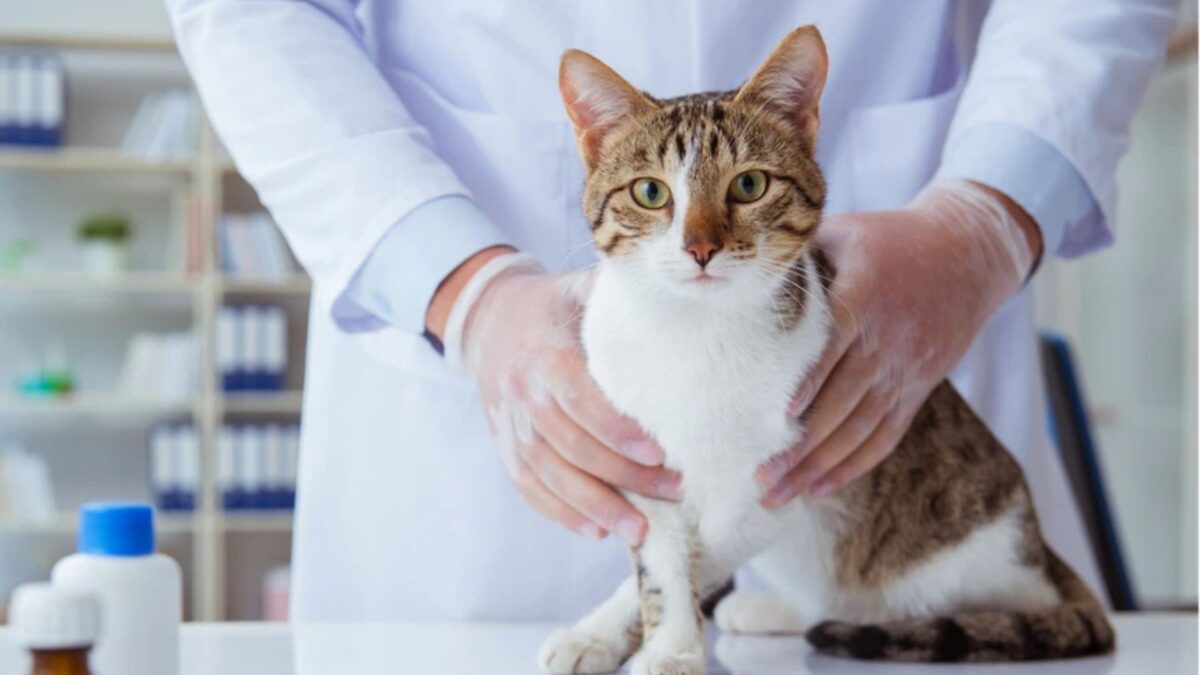Senior Cat Care: Why Regular Vet Visits Are Crucial For Aging Cats?

As cats age, they enter a new stage of life that requires extra attention. Just like humans, our feline friends need more care as they grow older. Senior cats face different health challenges than when they were young, making regular vet visits essential to keeping them healthy and comfortable. If you have a senior cat and want to ensure they enjoy their golden years, staying on top of vet appointments is key. Finding the best veterinarian in New York City to check in on your aging feline can make all the difference.
Let’s dive into why these regular visits are so important for senior cats.
Catching Problems Early
One of the biggest reasons regular vet visits matter is because they help catch health issues early. Cats are masters at hiding pain or discomfort. They won’t always show signs when something is wrong. However, a trained vet can spot subtle symptoms during a routine check-up.
As your cat ages, they become more vulnerable to conditions like kidney disease, arthritis, dental problems, and thyroid imbalances. These issues might not be obvious at first, but if caught early, they’re often easier to manage. By getting ahead of any potential problems, you’re giving your cat the best shot at living a longer, healthier life.
Aging Cats Are More Prone to Certain Diseases
Senior cats are more susceptible to developing chronic illnesses that require ongoing care. From heart disease to diabetes, the risk increases as they age. Regular vet visits ensure that these conditions are monitored and managed properly.
For example, kidney disease is quite common in older cats. It often progresses slowly, and cats may not show symptoms until the disease is advanced. But with routine blood work and check-ups, your vet can catch the signs early on. This means treatment can begin sooner, improving your cat’s quality of life.
Dental Health Is No Joke
Did you know dental disease is one of the most common health issues in senior cats? Poor oral hygiene can lead to severe problems, including infections and even heart disease. A regular vet visit will include a thorough check of your cat’s teeth and gums. If your vet notices signs of gum disease or tooth decay, they can recommend treatment right away.
Neglecting dental health can cause your cat pain and may make it difficult for them to eat. That’s why it’s so important to get those teeth checked! Your vet might suggest professional cleanings or at-home dental care tips to keep your cat’s mouth in top shape.
Weight Changes Can Be a Red Flag
As cats age, their metabolism changes. Some might lose weight, while others might gain too much. Both scenarios can be concerning. Sudden weight loss in senior cats can indicate a serious problem, like hyperthyroidism or cancer. On the flip side, weight gain can lead to obesity, which puts stress on your cat’s joints and can lead to diabetes.
Regular vet visits include a weight check, which helps you and your vet track any significant changes. If your cat is losing or gaining weight unexpectedly, your vet can investigate further and recommend dietary changes or treatments to keep them on track.
Don’t Ignore Behavioral Changes
Have you noticed your senior cat acting differently? Maybe they’re sleeping more, hiding, or even becoming more vocal. These changes in behavior could be a sign of underlying health problems. For instance, a cat that suddenly becomes more vocal could be experiencing pain or anxiety. A vet can help figure out what’s going on and offer solutions to keep your cat comfortable.
Sometimes, behavioral changes are linked to age-related issues like arthritis or cognitive decline. These conditions are tough to spot on your own but can be managed effectively with the right care plan. That’s why talking to a vet when you notice something off is crucial.
Senior Cats Need Vaccinations and Parasite Control Too
Just because your cat is older doesn’t mean they’re off the hook for vaccinations and parasite control. While their vaccination schedule might not be as frequent as when they were younger, senior cats still need protection from diseases. During your vet visits, your vet will assess which vaccinations are necessary and ensure your cat stays up-to-date.
Parasites like fleas and ticks can also affect senior cats, especially if they go outside. Regular vet visits help monitor and manage any parasites your cat might encounter. Keeping your cat protected from pests is vital, as these bugs can transmit diseases that are especially dangerous to older cats.
As your cat enters their senior years, they rely on you more than ever to ensure they get the care they need. Regular vet visits are a crucial part of that care. From catching early signs of illness to managing chronic conditions, staying on top of your cat’s health can make all the difference. And with the help of a knowledgeable cat veterinarian in NYC you can give your senior feline the best chance at a happy, healthy life. So don’t wait—schedule that vet visit today and keep your cat purring for years to come!







